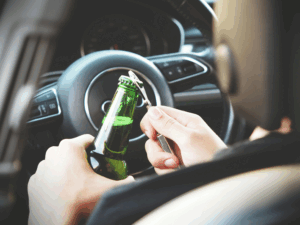 Driving under the influence (DUI) is more than breaking the law; it’s a danger to public safety. Alcohol, drugs, or any substance that slows your reaction time or judgment can put everyone at risk. That includes drivers, passengers, pedestrians, and other people on the road. DUI laws exist to prevent crashes and maintain community safety.
Driving under the influence (DUI) is more than breaking the law; it’s a danger to public safety. Alcohol, drugs, or any substance that slows your reaction time or judgment can put everyone at risk. That includes drivers, passengers, pedestrians, and other people on the road. DUI laws exist to prevent crashes and maintain community safety.
What Is a DUI?
A DUI happens when someone drives a vehicle while their ability to drive safely is affected by alcohol, drugs, or another substance. Most states set the legal Blood Alcohol Concentration (BAC) limit at 0.08%, but you don’t have to reach that number to be considered unsafe. If your driving shows clear signs of impairment, police can still charge you with DUI.
BAC Limits and Driver Types
BAC limits vary by state and by type of driver. From the West Virginia DMV:
- Adults (21+): The limit is 0.08%.
- Commercial drivers: The limit is 0.04%.
- Drivers under 21: A zero-tolerance policy applies, meaning any measurable alcohol (around 0.02% or higher) can result in charges.
West Virginia also has aggravated DUI. This applies when a driver’s BAC is 0.15% or higher. These cases bring harsher penalties, including mandatory jail time, longer license suspensions, and higher fines, even for first offenses.
The Impact of Impaired Driving
Each year, thousands of lives are changed because of drunk or drugged driving. Families may face serious injuries, the loss of loved ones, or long-term financial struggles. The National Highway Traffic Safety Administration reports that alcohol-related crashes make up nearly one-third of all traffic deaths in the U.S.
For those injured, the aftermath often includes medical bills, lost income, and the challenge of recovery after someone else’s reckless choice.
Civil Liability and Legal Rights
Drivers who cause harm while impaired can be held responsible in civil court. People injured in DUI crashes may seek compensation for medical costs, lost wages, pain and suffering, and more. Personal injury claims play an important role in helping families recover financially and in holding negligent drivers accountable.
Why Responsible Driving Matters
DUI laws exist not only to hold drivers accountable but also to keep people on the road safe. Choosing not to drive impaired, using a designated driver, or calling a rideshare isn’t just about staying out of trouble; it’s about preventing accidents that can change lives forever.
Whether you live in West Virginia, Virginia, or Maryland, impaired driving has serious consequences. Each state enforces DUI laws to protect communities and save lives. No matter where you are, responsible driving matters. By making safe choices, you protect yourself, your loved ones, and everyone else on the road.
At Skinner Accident & Injury Lawyers, we are committed to serving our communities and are here whenever you need us. To learn more about this topic, visit our Drunk Driving Accident page to see how our attorneys can help. You can also explore the Cases We Handle page to learn more about the work we do for the injured.

